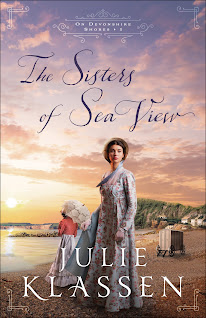Carver stood on the edge of the large banquet hall, studying the milling crowd as he sipped his wine. The emperor’s guest list had been minimal, for purposes of security. Each of the newlyweds had been allowed only one escort and a limited guard for the journey to the remote temple of Esperance, and the rest of the spectators were made up of nobles, politicians, and key church leaders from the capitol.
Carver wondered how many of them were enemies.
Positioned by the towering archways that led to an open balcony, Carver could hear the sounds of the jungle that surrounded the temple compound. The screeching calls of birds, the chattering of monkeys, the chirp and thrum of countless insects. Rolling hills, thick vegetation, and distant jagged mountain peaks were all he could see. Gnarled vines strangled the tan stone railing of the balcony, which spanned the length of the dining hall. Sticky heat clung to Carver’s skin, but he wasn’t exactly uncomfortable. He’d been in jungles before. He’d fought and bled in them.
He’d never thought to be married in one, though.
His father came to stand beside him. The wineglass he held looked ridiculously small in his large hand. Cregon Vincetti, the High General of Craethen, was tall and imposing, but Carver knew the lines around his blue eyes were from smiling with his family, and that his booming laugh was louder than any shouted commands. He didn’t have a single weapon on his belt; every entourage had been thoroughly searched when they’d entered Esperance. Only the guards were allowed to have weapons.
Cregon looked just as strange without his customary blades as Carver felt without his own.
“Your mother may never forgive the emperor for this,” his father said. His voice was pitched low, though they stood apart from the crowd and the buzz of other conversations would drown out his words before they had a chance of being overheard.
Carver still forced a smile, just in case anyone was watching. “She did offer to be my escort.”
Cregon leveled Carver a look. “I wasn’t about to send your mother here.”
“You were worried about her if a fight broke out?”
“No. I was worried she might start a fight.”
Carver huffed a short laugh. His mother’s skills with a blade were rivaled only by her temper, once flared.
She didn’t approve of Carver’s arranged marriage, or of being cut off from him for a year. But then, she hadn’t stopped hovering since he’d returned from Harvari—bloody, broken, and barely alive. His parents worried that the wounds that had nearly killed him ran deeper than his skin.
They were right, though Carver would never admit it aloud.
Cregon Vincetti took a swallow of wine and winced.
Carver’s mouth curved. “Westmont’s orchards have spoiled you.”
His father grunted as he eyed the red liquid. “Nothing tastes quite as good as home.”
Home. The word elicited all sorts of conflicted feelings, and the stiff collar of Carver’s uniform was suddenly too tight around his throat. Family, duty, honor, war—they were all entwined with home. As was the feeling of being trapped.
When the emperor had summoned him to the palace weeks ago, he’d assumed it was to send him back to Harvari. And despite everything, he was itching to do anything after convalescing at home for six months. Even return to war.
He just hadn’t anticipated this particular war.
His eyes sought his new bride, who stood on the far side of the banquet hall. As if she wanted to be as far away from him as possible.
Amryn Lukis—Vincetti now, he supposed—was a puzzle. She had been his wife—Saints, that was a terrifying word—for nearly an hour, yet they hadn’t actually spoken to each other. The moment the ceremonies ended, they’d all been ushered from the chapel and into this hall. Amryn had stepped away from Carver without a backward glance and moved to stand by her uncle.
She was beautiful. There was no denying that. Carver knew he would always remember the moment those chapel doors had opened and he’d first glimpsed her. The fire of her hair paired with her porcelain skin was a striking contrast, and the stark white of her dress only enhanced the stunning effect. Her sea green eyes were pale and depthless.
She was moderately tall, and though her build was slender, the clinging dress revealed distracting curves. It wasn’t until she stood before him that he noticed the light dusting of freckles scattered across her pert nose and curved cheekbones. Instead of marring her beauty, the markings enhanced it. They made her look real. Her round face was softened further by the crimson ringlets that brushed her cheeks.
Saints, that hair. Even now, standing with a room between them, those locks were distractingly vibrant. He wondered how long they fell when unpinned.
A stupid thing to wonder, considering circumstances.
As if she felt his attention, Amryn’s focus slid to him.
There was nothing pale or delicate in the way she looked at him. Her strange green eyes bored into him, firm and unafraid. Few dared meet his gaze like that. Not with his reputation. But she didn’t flinch away. She challenged him with that stare.
For the life of him, he didn’t know why that made his pulse thrum faster.
 My Testimony Tree by Sierra Wilson
My Testimony Tree by Sierra Wilson





.jpg)





.jpeg)



